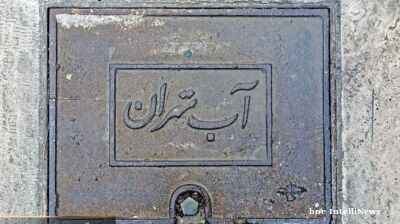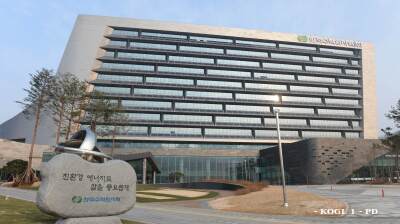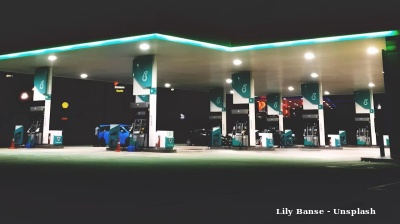Taiwan’s President Lai Ching-te has signalled a willingness to consider advanced nuclear technology being reintroduced while preparing to overhaul his Cabinet, following a weekend of political tests that largely favoured his administration.
Most prominent amongst the weekend votes was a referendum on extending the life of the island’s last nuclear power station that fell short of the legal threshold Focus Taiwan reports. A total of 4.34mn (74.2%) people supported restarting the Third Nuclear Power Plant, compared with the 1.51mn (25.8%) who opposed, but the vote required at least a quarter of all eligible citizens in favour to pass.
Speaking after the overwhelming pro-nuclear results, Lai said his government respected the outcome but acknowledged that society expects a broader mix of energy choices. The president, who also chairs the ruling Democratic Progressive Party (DPP), then moved to take the wind out of the sails of the pro-nuclear camp by adding that nuclear energy cannot be decided through a single plebiscite.
Any attempt to restart a facility, he explained, would require both regulatory approval from the Nuclear Safety Commission and a separate inspection process by state-owned Taipower. He has instructed both bodies to follow those legal steps.
Lai then stressed that policy on nuclear energy would remain grounded in three principles: safety, the management of nuclear waste, and public consensus. He added that if technology improved, waste was better handled, and social acceptance grew, his administration would not exclude the possibility of advanced nuclear systems. In doing so, given the speed such legislation is passed in Taiwan, he essentially put in place a set of criteria designed to pass off the nuclear debate to his eventual successors.
In the eyes of many Taiwanese the day after the referendum, such remarks were interpreted as a softening of the DPP’s long-standing goal of a “nuclear-free homeland”, a policy reached in mid-May this year when the Maanshan plant - Taiwan’s final operating reactor - was shut down.
Key to the eventual return to nuclear power, however, will be the resulting Cabinet reshuffle, which Lai confirmed on the evening of August 23; one expected to be shaped by the ongoing energy debate as his government looks to consolidate authority and manage Taiwan’s transition to new power sources.
On the street in Taiwan though, the result has reignited long-standing divisions over the island’s energy strategy, prompting contrasting interpretations from opponents and supporters alike – particularly over numbers as turnout at the referendum stood at just 29.5% of eligible citizens Focus Taiwan says.
Given the fact that support is required from at least 25% of the electorate though, the outcome drew immediate reaction from across the political spectrum. Anti-nuclear campaigners hailed the abstention of more than 70 per cent of voters as evidence of a lack of appetite for prolonging the Maanshan facility.
In doing so, The National Nuclear Abolition Action Platform described the initiative as rushed, lacking widespread public engagement and failing to provide sufficient information. The Green Citizens’ Action Alliance argued that the result underscored the limits of party-led campaigning, noting that attempts by the opposition Kuomintang (KMT) and Taiwan People’s Party (TPP) to mobilise voters did not achieve the turnout needed.
Local officials aligned with the ruling Democratic Progressive Party (DPP) echoed that view. Pingtung County Magistrate Chou Chun-mi said the high abstention rate amounted to a rejection of nuclear energy and signalled strong public disapproval of keeping Maanshan online.
Supporters of nuclear power, meanwhile, claimed that the result told a different story. According to Focus Taiwan, TPP chairman Huang Kuo-chang was reported as highlighting the overwhelming share of “yes” votes compared with “no”, which he argued reflected growing societal acceptance of nuclear energy as part of Taiwan’s power mix. He further pointed to the outcome in Pingtung Country itself in southern Taiwan, where residents living closest to the plant also backed the extension by a wide margin.
Huang said his party would seek changes to the Referendum Act in the next legislative session, contending that the current system restricts the expression of public opinion. He argued that amendments introduced by the DPP in 2019 which require referendums to be held every two years in August – holiday season for many Taiwanese with schools out and parents needing to take care of offshoring - rather than alongside national elections which are typically held in January effectively confined direct democracy to what he called a “caged” or “bird cage” mechanism.
Opposition KMT lawmaker Su Ching-chuan also urged the government not to ignore the majority in favour, despite the legal threshold not being met. He rightly described the vote as a clear signal that policymakers should weigh more carefully the role of nuclear energy.
bneGREEN

EXPLAINER: What is the EU’s CBAM and how will it affect global trade from 2026?
The European Union’s Carbon Border Adjustment Mechanism (CBAM) will enter its full operational phase on January 1, 2026, marking a major shift in global climate and trade policy.

Iran faces critical water crisis after driest year in five decades
Iran faces critical water crisis after driest year in five decades with 40% nationwide rainfall drop.

Global renewables to double by 2030, but IEA warns momentum must accelerate
Global renewable energy capacity is on course to double by 2030, reaching 4,600 GW—comparable to the current combined total of China, the European Union and Japan—according to the International Energy Agency’s Renewables 2025 report.

South Korea’s embrace of SMRs as a pillar of nuclear policy
Spearheaded by Korea Hydro & Nuclear Power, these compact reactors are increasingly being seen as central to the nation's energy policy, offering flexibility, scalability, and ultimately a pathway to carbon neutrality




